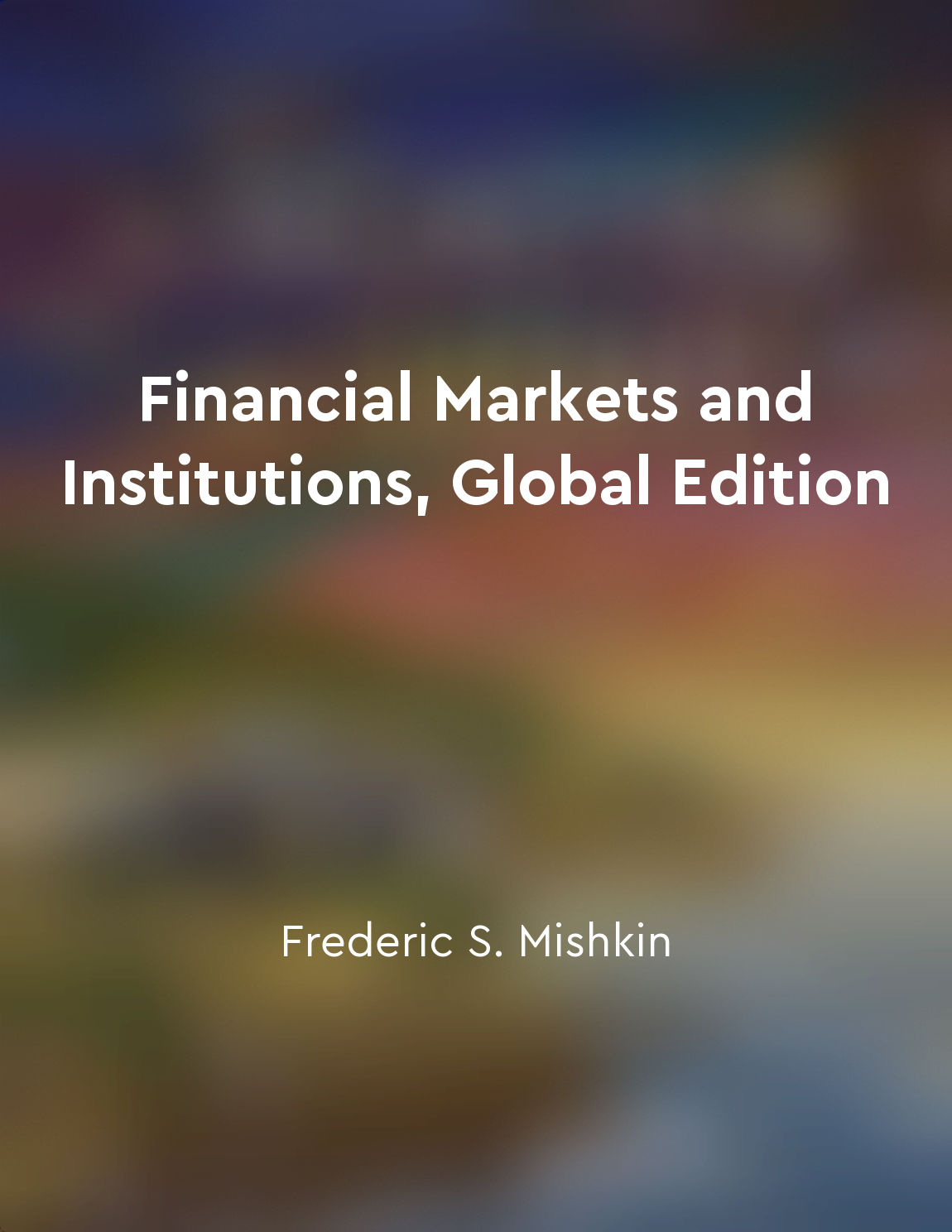The Federal Reserve plays a crucial role in stabilizing the economy from "summary" of Financial Markets and Institutions, Global Edition by Frederic S. Mishkin,Stanley G. Eakins
The Federal Reserve, often referred to as the Fed, is the central bank of the United States and plays a pivotal role in maintaining economic stability. Through its various tools and policies, the Fed aims to promote full employment, stabilize prices, and moderate long-term interest rates. One of the primary ways in which the Fed accomplishes these objectives is through monetary policy. Monetary policy involves the control of the money supply and interest rates to influence the overall level of economic activity. By adjusting the federal funds rate, which is the interest rate at which banks lend reserves to each other overnight, the Fed can influence borrowing, spending, and investment decisions. Lowering the federal funds rate encourages borrowing and spending, which can stimulate economic growth during periods of sluggish activity. Conversely, raising the rate can help to cool down an overheated economy by reducing excessive borrowing and spending. In addition to the federal funds rate, the Fed also uses open market operations to influence the money supply. By buying or selling government securities on the open market, the Fed can inject or withdraw liquidity from the financial system. This can help to stabilize short-term interest rates and ensure that banks have enough reserves to meet their obligations. Furthermore, the Fed serves as a lender of last resort to financial institutions in times of crisis. By providing emergency funding and liquidity support, the Fed can help prevent widespread bank failures and disruptions in the financial system. This was evident during the 2008 financial crisis when the Fed implemented various programs to stabilize the banking sector and restore confidence in the markets.- The Federal Reserve plays a critical role in stabilizing the economy by implementing effective monetary policy, managing the money supply, and serving as a backstop to the financial system. Its actions have far-reaching implications for the overall health of the economy and the well-being of individuals and businesses alike.


